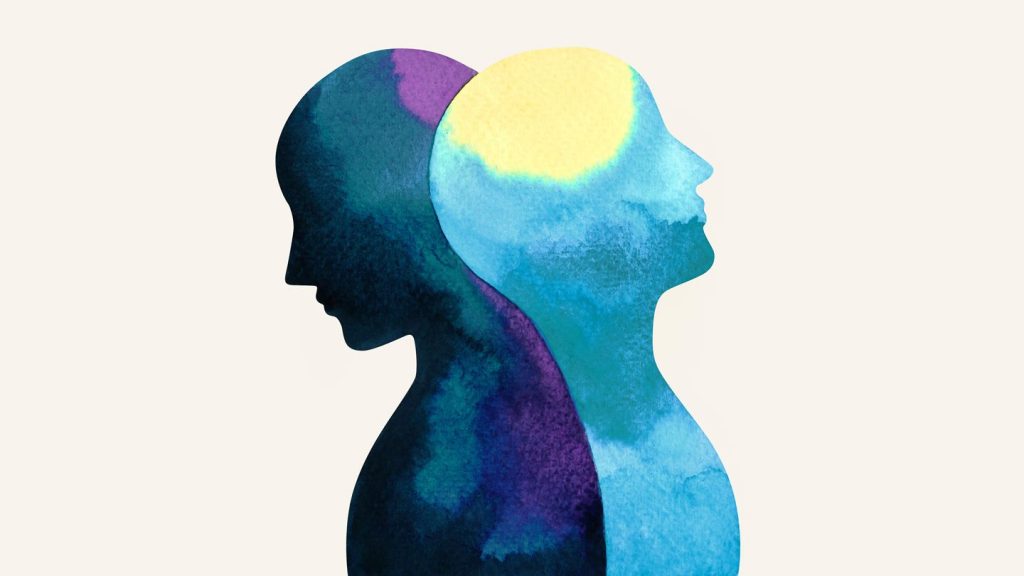Bipolar disorder is a mental illness that affects millions of people all over the world. Living with bipolar disorder can be hard. It can be hard to find a treatment for bipolar disorder that works well for you. In this blog post, we will discuss the latest research on bipolar disorder treatment and how it can help you or someone you love!
What is Bipolar Disorder?

Bipolar disorder is a mental health condition that causes extreme mood swings. These mood swings can cause people with bipolar disorder to feel very high and happy (mania) or very low and sad (depression). Mania can make people feel energetic, happy, and irritable. They may have trouble sleeping and talking too much. Depression can make people feel very sad, hopeless, and worthless. They may have problems eating or sleeping.
The causes of bipolar disorder are not fully understood, but it is thought that a combination of genetic and environmental factors plays a role in causing the condition. Some people with bipolar disorder may have changes in their brain that make them more likely to have mood swings.
There are several symptoms of bipolar disorder. The main symptoms are mood swings, which can cause people to feel high and happy (mania) or very low and sad (depression). Mania can make people feel energetic, happy, and irritable. They may have trouble sleeping and talking too much. Depression can make people feel very sad, hopeless, and worthless. They may have problems eating or sleeping.
Other symptoms of bipolar disorder include:
- Having a very fast or slow heartbeat
- Feeling shaky or unsteady on your feet
- Racing thoughts
- Difficulty concentrating
- Feeling irritable a lot of the time
- Feeling like you want to hurt yourself or commit suicide
Latest Research Findings on Bipolar Disorder Treatment
There is some new research that suggests a type of medication called an atypical antipsychotic may be helpful in treating bipolar disorder. This medication seems to help control mania and depression symptoms.
Another study found that adding lithium to treatment can help reduce the number of hospitalizations people with bipolar disorder experience.
Lithium is a medication that has been used to treat bipolar disorder for many years. It seems to help control mood swings and may also help protect the brain from damage.
How To Diagnose Bipolar Disorder?
Bipolar disorder can be difficult to diagnose because the symptoms can be similar to other mental health conditions. To diagnosed bipolar disorder, a doctor will ask you about your symptoms and how they have changed over time. The doctor may also do some tests to rule out other conditions.
Treatment Options For Bipolar Disorder
There are many different types of treatment available for bipolar disorder. Some of the most common treatments include medication, therapy, and lifestyle changes.
Therapy Options For Bipolar Disorder

There are many different types of therapy that can be helpful for people with bipolar disorder. Some common therapies include cognitive-behavioral therapy (CBT), family-focused therapy, and interpersonal and social rhythm therapy.
- Cognitive-Behavioral Therapy (CBT): Cognitive-behavioral therapy is a type of therapy that helps people change the way they think and behave. CBT can be helpful in treating bipolar disorder because it can help you learn how to control your mood swings.
- Family-Focused Therapy: Family-focused therapy is a type of therapy that helps families understand and support their loved one with bipolar disorder. This type of therapy can be helpful in reducing the symptoms of bipolar disorder.
- Interpersonal and Social Rhythm Therapy: Interpersonal and social rhythm therapy is a type of therapy that helps people regulate their daily activities, such as sleep, eating, and work. This type of therapy can be helpful in treating bipolar disorder because it can help stabilize mood swings.
Medication Options For Bipolar Disorder

There are many different types of medication that can be used to treat bipolar disorder. Some of the most common medications include mood stabilizers, antipsychotics, and antidepressants.
- Mood Stabilizers: Mood stabilizers are a type of medication that is used to control mood swings in people with bipolar disorder. Mood stabilizers help keep your mood stable and can help prevent episodes of mania and depression.
- Antipsychotics: Antipsychotics are a type of medication that is used to treat mental health conditions such as schizophrenia and bipolar disorder. Antipsychotics help control the symptoms of mania and psychosis.
- Antidepressants: Antidepressants are a type of medication that is used to treat depression. Antidepressants can be helpful in treating bipolar disorder because they can help control the symptoms of depression.
Lifestyle Changes For Bipolar Disorder

There are many different lifestyle changes that you can make to help treat bipolar disorder. Some common lifestyle changes include getting regular exercise, eating a healthy diet, and getting enough sleep.
- Exercise: Exercise can be helpful in treating bipolar disorder because it can help control the symptoms of mania and depression. Exercise can also improve your mood and help you feel better overall.
- Diet: Eating a healthy diet is important for everyone, but it is especially important for people with bipolar disorder. A healthy diet can help control mood swings, reduce stress, and improve your overall health.
- Sleep: Getting enough sleep is important for everyone, but it is especially important for people with bipolar disorder. People with bipolar disorder often have trouble sleeping, which can worsen the symptoms of the disorder.
Benefits Of Taking Bipolar Disorder Treatment

There are many benefits to taking bipolar disorder treatment. Some of the most important benefits include:
- Reducing symptoms: Treatment can help reduce the symptoms of bipolar disorder. This can include reducing mood swings, psychosis, and depressive episodes.
- Preventing relapse: Treatment can also help prevent relapse or the return of symptoms. This is important because relapse can be very dangerous and can cause serious problems.
- Improving the quality of life: Treatment can also improve the quality of life for people with bipolar disorder. Treatment can help you feel better mentally and emotionally, which can improve your overall quality of life.
Hence, taking bipolar disorder treatment can help you live a better life. You will be able to control your mood swings, reduce your symptoms, and improve your overall health. Treatment is the best way to get the most out of your life.
Helping Someone With Bipolar Disorder Treatment

If you have a loved one who is struggling with bipolar disorder, there are many things you can do to help them. Some of the most important things include providing support, being patient, and seeking professional help.
- Support: Supporting someone who is struggling with bipolar disorder is very important. Providing emotional support can help people who are sick or feel bad. You can help them with practical things, like getting to appointments or doing things when they are not feeling well.
- Patience: Some people with bipolar disorder can be hard to understand. They might not always act the way you expect them to. Be patient and understanding, and remember that your loved one is doing the best they can.
- Professional Help: If you are feeling overwhelmed or like you can’t handle things anymore, it is important to seek professional help. There are many different types of professionals who can help, including doctors, therapists, and social workers.
Bipolar disorder treatment can be difficult but with the right combination of medication and therapy, it is possible to manage the disorder and live a normal, healthy life.
Conclusion
Bipolar disorder is a mental illness that causes mood swings. The two main types of bipolar disorder are bipolar I and bipolar II. Bipolar I is characterized by manic episodes, while bipolar II is characterized by hypomanic and depressive episodes. Some people may only experience one type of episode, while others may experience multiple types. Bipolar disorder can be treated with medication and/or therapy. Moreover, there are many different medications that can be used to treat bipolar disorder, and each person’s treatment plan will be different. Therapy can also help to manage bipolar disorder symptoms. If you or someone you know is struggling with bipolar disorder, please seek help. There is no shame in seeking treatment for mental illness, and there are many people who are willing and able to help.
A Word From Therapy Mantra
Your mental health — Your psychological, emotional, and social well-being — has an impact on every aspect of your life. Positive mental health essentially allows you to effectively deal with life’s everyday challenges.
At TherapyMantra, we have a team of therapists who provide affordable online therapy to assist you with issues such as depression, anxiety, stress, workplace Issues, addiction, relationship, OCD, LGBTQ, and PTSD. You can book a free therapy or download our free Android or iOS app.


